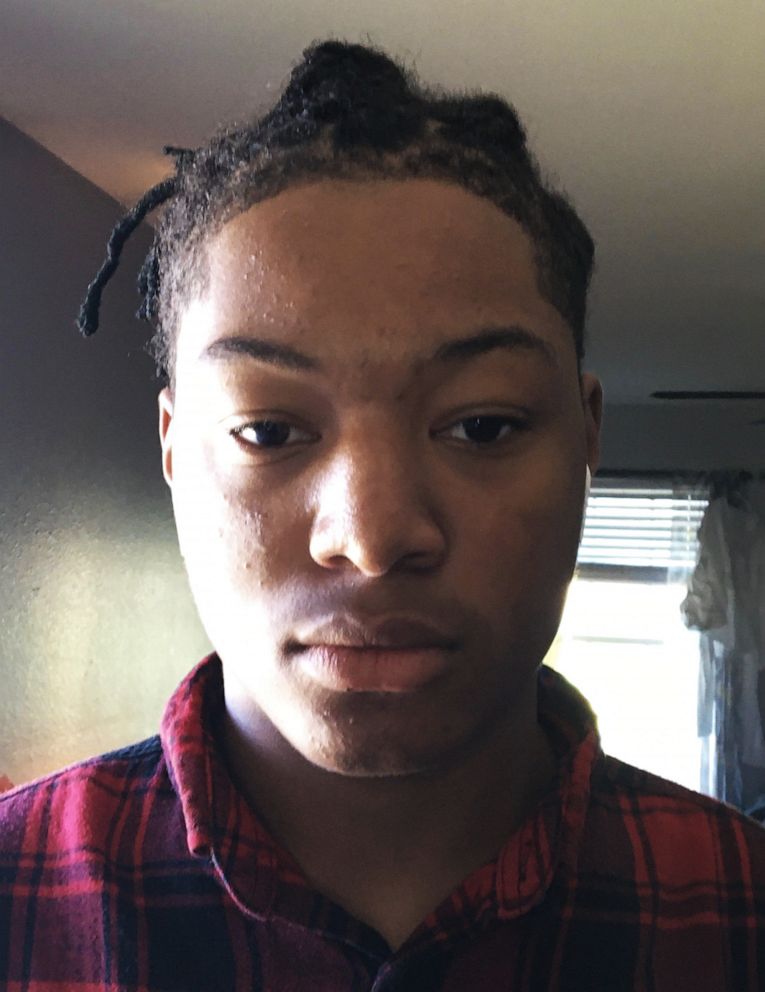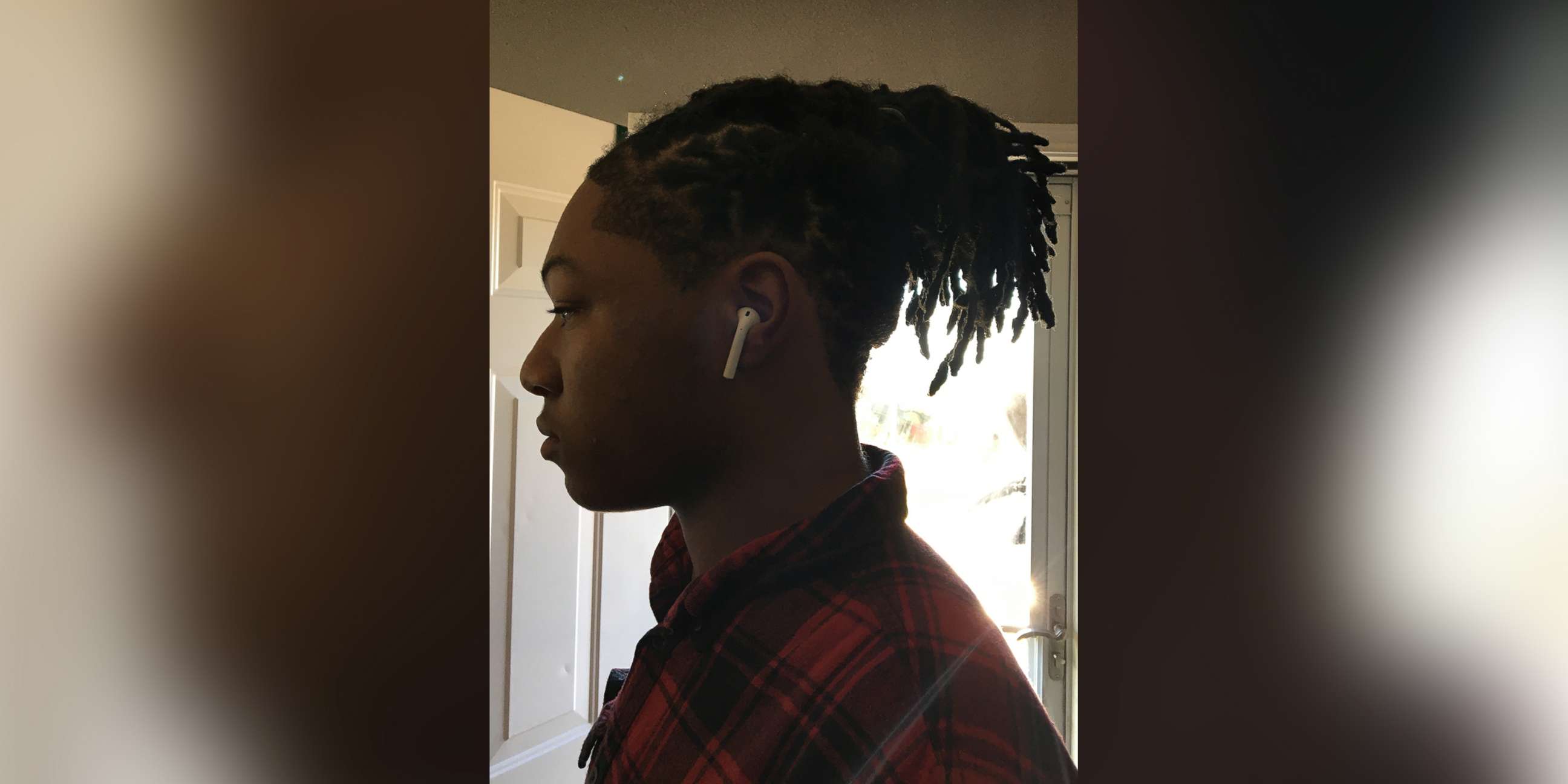Small town at the center of new dreadlock controversy
Critics say the issue is a lack of diversity in the school board and community.

A Texas high school is in the spotlight after parents of two students said their sons face in-school suspension and other disciplinary action for refusing to cut their dreadlocks.
The controversy, which critics say is rooted in racial insensitivity and policies crafted by the school board in the majority white town, is the latest pertaining to natural black hairstyles that has emerged around the country. The district vehemently denies the accusations of racism and maintains that its policies, in place for 30 years, apply to all students regardless of race.
In September, a New Jersey referee was suspended after forcing a black teenager to cut his dreadlocks in order to participate in a wrestling match.
New York and California have passed legislation banning discrimination based on natural hairstyles -- an issue that has affected black people in school and in their places of employment. Sen. Cory Booker introduced federal legislation that would ban such discrimination.
Deandre Arnold is a student at Barbers Hill High School, a public school in Mont Belvieu, Texas, 30 miles east of Houston. His mother, Sandy, told ABC News that in December, the school told her that Deandre's hair has to be in dress code and "the only way it could be in dress code, I would have to cut it," she said -- the issue being the length of the dreadlocks.
In the school's "dressing and grooming" code -- part of a 112-page handbook posted on its website -- the policy on male hairstyles reads: "Male students’ hair will not extend, at any time, below the eyebrows, or below the earlobes. Male students’ hair must not extend below the top of a t-shirt collar or be gathered or worn in a style that would allow the hair to extend below the top of a t-shirt collar below the eyebrows, or below the ear lobes when let down."
Until he cuts his hair, Deandre was given the option of an in-school suspension (ISS), which typically means the student is removed from the usual classroom but remains on campus to continue schoolwork, or attends an alternative school, his mother said. Either option would allow Deandre to graduate in a few months, but he wouldn't be able to walk with his peers during graduation, Sandy said.

"I refuse to send him to ISS, he hasn't done anything wrong," Sandy said. She said she is frustrated because she said the school "never called me because Deandre was being disrespectful or because of his grades, but because of his hair."
Last year, as Deandre's dreadlocks grew, he would use rubber bands and clips to keep them off his shoulders and in compliance with the school dress code, his mother said. Then, she says the school changed the dress policy, after a Dec. 16, 2019, board meeting, forbidding male students from wearing adornments in their hair.
The school's superintendent, Greg Poole, denied that the policy was changed. "Absolutely not," he told ABC News when asked if the policy had been amended.
However, the minutes posted on the district's website from that board meeting show, "Revisions to the Student Dress Code/Procedures for processing requests" as an item on the meeting agenda.
Poole said that at the meeting, "there were many clarifications, but no substantive changes." He also said that the school's principal had warned Sandy Arnold that her son "was out of compliance long before any revisions."
Denadre's cousin, 16-year-old Kaden Bradford, has been told he cannot return to school unless he cuts his dreadlocks as well, his mother, Cindy Bradford, told ABC News.
"My son is having the same issue (as Deandre)," Bradford said. "He's a sophomore, he's been growing his dreads out since sixth grade."

Bradford said that shortly after Christmas break, the school's principal, Rick Kana, told her that "the only way Kaden can come back to school is if he cuts his hair."
"He had [dreads] last year," she said. "He took a headband, and pushed them off his shoulders. [The school] said if he kept them up like that it was no problem."
Bradford said she tried to appease the school by getting Kaden's dreads cornrowed, a tightly-braided hairstyle in which the dreadlocks lay flat against the scalp.

"I spent $70 on Sunday to get it cornrowed," Bradford said, but she said that Kana, the school principal, insisted that Kaden's hair be cut.
ABC News requested comments from Kana and the school's director of communications, but has yet to hear back.
Members of the community have criticized the school on social media and at a recent school board meeting. Gerry Wayne Monroe, who said he is an education advocate and executive director of the United Urban Alumni Association, which he describes as a group of alumni that act as watchdogs for their school districts, threatened school officials with round-the-clock protests at a board meeting. He has also filed a dress code exemption form with the school on Deandre's behalf, after seeing Deandre's story on a local show and reaching out to the family.

Monroe told ABC News that he believes the issue with dreadlocks stems from a lack of diversity on the school board and within the community. All of the board members are white with the exception of one Hispanic member, according to the school superintendent.
"The population of minorities is very, very small," Monroe said of the community. He said that at the board meeting, the school board members "sat there like they didn't care," when he and others made pleas on behalf of Deandre and Kaden.
The high school is in the town of Mont Belvieu, Texas, located in Chambers County with a small portion of the town in Liberty County. The town's demographics are 78.1% white, 11.8% Hispanic/Latino and 9% black, according to datausa.io.
Sandy Arnold said that at an open forum meeting in December, she asked the school board, "Have you talked to someone of color to get some history about dreadlocks?"
Kaden, Cindy said, is a good student and band member who doesn't get in any trouble. She said she had "no earthly idea" why the school has suddenly pressured Deandre and Kaden to cuts their locks after allowing them to wear them in previous years. She said Kaden and their entire family have gone to this same school district all of their lives and cannot understand why the students' hairstyles have suddenly become an issue.
Both Kaden and Deandre are "great kids," said Poole.
He also said that both boys are "100%" allowed to come to school and neither has been suspended.
"We allow dreadlocks and extensions," Poole told ABC News. "We have a dress code on hair length that is uniformly applied to all students of all races. We have a legal right to that expectation."
When asked if the board would consider reexamining its policy based on changing styles and trends, Poole said he would not speak on behalf of the board, but that it has a "constitutional right" to enact policies.
"The policy is not about cornrows or ethnicity," Poole said. "There is no injustice being done." He acknowledged that both students could be subjected to ISS if they did not cut their hair, bur emphasized that the rule applies to all male students no matter their ethnicity or hairstyle. He said that the district has a legally approved exemption policy for medical and religious reasons and said that the parents did not opt to exercise that option.
In the meantime, Bradford said she has contacted an attorney over the matter. Sandy Arnold said she is leaving all options "on the table" right now, but feels that she and the school board "are at a stalemate."




